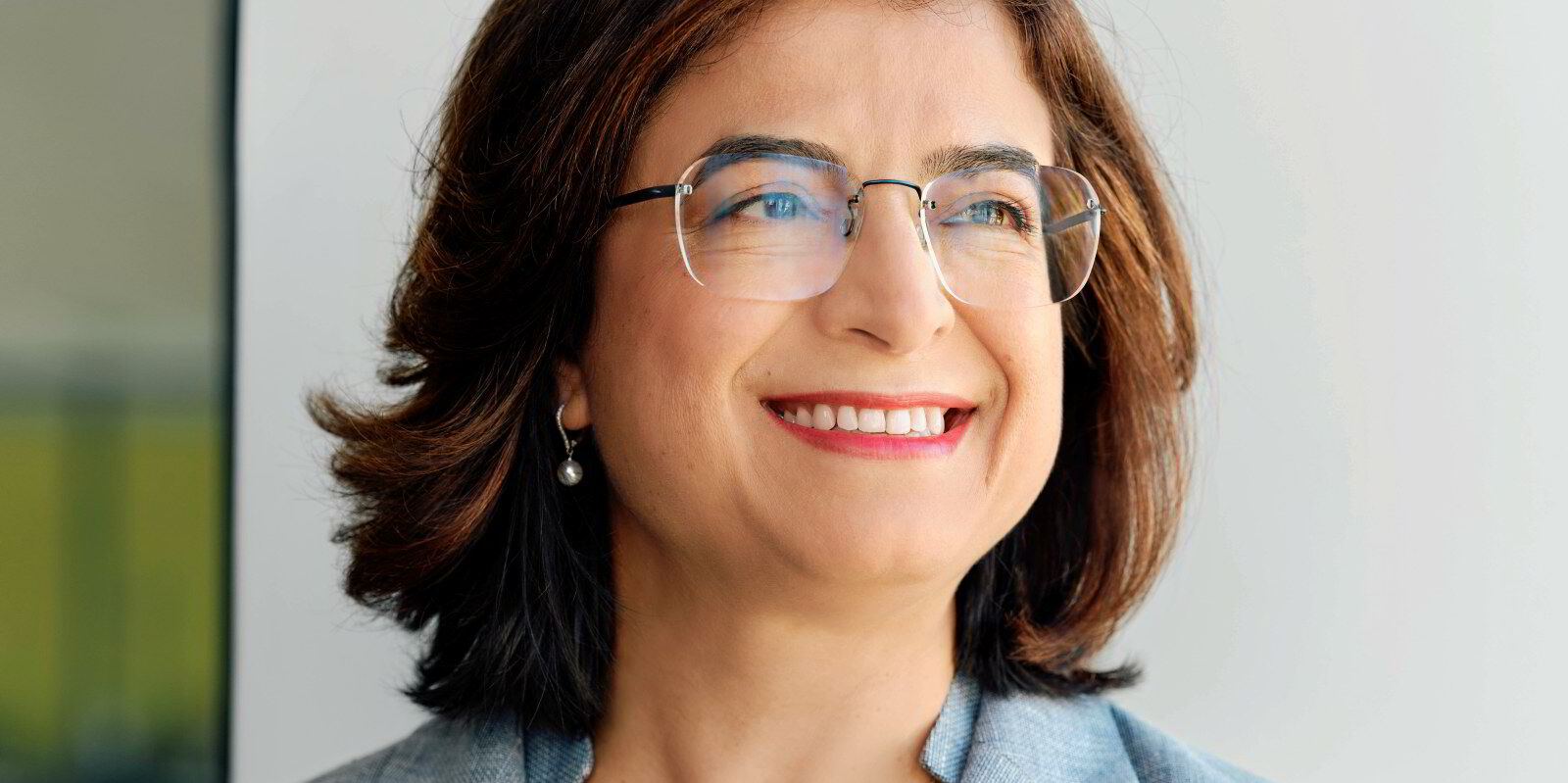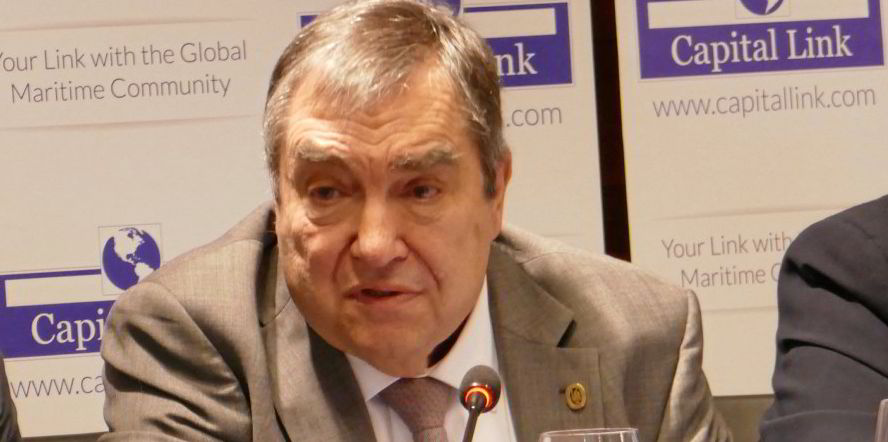Shipowners grappling with fuel uncertainty often complain that classification societies do not help them decide which alternative fuel to go for in the future.
This attitude, however, misunderstands classification societies’ basic role, argues Paillette Palaiologou, the head of Bureau Veritas’ biggest marine office in the world.
“Our primary role is to ensure safety, whatever the technology, and an understanding of risk,” she told TradeWinds in an interview on the sidelines of Posidonia.
“Our role is to assess risk and help clients make the best decisions based on the facts,” added Palaiologou, who has been heading BV’s marine and offshore division for southeastern Europe, the Black Sea and Adriatic zone for the past seven years.
Palaiologou believes that, in any case, there will be no one-size-fits-all solution.
Managing a marine office that oversees half of BV’s global bulker and tanker fleet and about one-third of its LNG fleet, the UK-trained naval architect and marine engineer has her ear close to the ground when it comes to Greek clients’ worries.
Major players, including George Procopiou and Suzanna Laskaridis, attended BV Marine & Offshore’s latest Hellenic and Black Sea committee meeting, which took place in Athens before Posidonia.
Procopiou expressed concerns about the difference between what is desirable when it comes to decarbonisation and what is doable.
Laskaridis focused on the need to address the challenge of plastic waste instead.
“Decarbonisation is clearly the biggest concern,” Palaiologou said.
“But we also need to protect and look after the marine environment in the broadest sense.
“Choosing the fuels of the future is a challenge without easy answers — reducing plastic in our seas and oceans, however, is something we should start doing now,” she added.
A particular worry aired at the meeting was deciding which newbuildings to order, amid fears of investing in assets that might ultimately not yield a return.

Given the uncertainty about the availability and safety of new fuels, many owners are playing it safe.
“Most are focusing on what is at hand: operational measures, speed reduction, energy-saving devices and better communication with charterers,” Palaiologou said.
Not every Greek shipowner plays for time, however.
Major industry figures have already embarked on newbuilding programmes, partly on confidence that the market will eventually land on its feet and adjust, as it always does, Palaiologou said.
Key position
Such confidence has underpinned the robust growth of the Greek fleet, which has helped BV find new clients in the country.
Over the past seven years, BV’s Greek division has doubled its fleet — both in terms of ship numbers and tonnage, Palaiologou said.
“BV in Greece used to be known for its bulker fleet but this is no longer the case,” said the Greek executive, who used to be hull and classification officer of Petros Pappas-led Oceanbulk Maritime before joining BV in 2005.
Apart from growing a tanker fleet, BV has also made inroads into the LNG carrier segment, on the back of strongly expanding Greek involvement in the sector in recent years.
Palaiologou attributes a large part of BV’s marine growth to the company’s diversified structure across six different business lines that encompass industry, construction, energy and consumer products.
Sharing knowledge between those business lines is a key advantage, Palaiologou said, citing nuclear energy, carbon capture and hydrogen as examples where other divisions can support maritime activities and services.
“Hinda Gharbi, who took over as chief executive officer last year, is very much focused on interaction and sharing knowledge between business lines — I believe this is a key competitive advantage for a future where, increasingly, shipping will no longer be just about the ship,” Palaiologou said.





